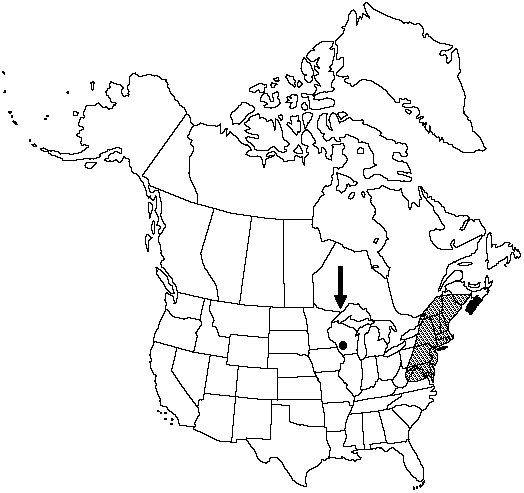Difference between revisions of "Thelypteris simulata"
Amer. Midl. Naturalist 1: 226. 1910.
FNA>Volume Importer |
FNA>Volume Importer |
(No difference)
| |
Revision as of 18:57, 24 September 2019
Stems long-creeping, 1.5–3 mm diam. Leaves monomorphic, dying back in winter, often 1 cm or more apart, fertile leaves often somewhat longer than sterile leaves, 25–80 cm. Petiole straw-colored above base, 12–45 cm × 1–3 mm, at base sparsely set with tan, ovate, glabrous scales. Blade lanceolate, 14–35 cm, proximal pinnae largest, or lowest pair slightly smaller, blade tapered gradually to pinnatifid apex. Pinnae deeply pinnatifid to ca. 1 mm from costa, 3–10 × 1–2 cm; segments oblong, somewhat oblique, entire; proximal pair of veins from adjacent segments meeting margin above sinus. Indument abaxially of sparsely set hairs 0.2–0.4 mm primarily on costae, also of yellowish short-stalked glands less than 0.1 mm, blade tissue with numerous reddish to orangish, resinous, shiny, sessile, hemispheric glands; blades adaxially with scattered hairs on veins. Sori round, medial; indusia tan, often glandular; sporangia glabrous. 2n = 128.
Habitat: Terrestrial in acid soils of shaded swamps and bogs, frequently associated with sphagnum
Elevation: 0–100 m
Distribution

N.B., N.S., Ont., Que., Conn., Del., Maine, Md., Mass., N.H., N.J., N.Y., Pa., R.I., Vt., Va., W.Va., Wis.
Discussion
Selected References
None.